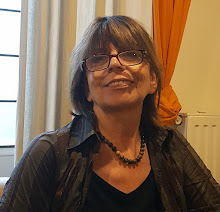A: Discovering morning.
From this interview:
David Bowie Answers the Famous Proust Questionnaire
Q: What do you regard as the lowest depth of misery?
A: Living in fear.
About mornings and fear he had some beautiful thoughts - or shall I better say amazing expression of feelings.
Being asked how is his mornings, Bowie answered something like: I wake up and notice I have a breath, then another one, well, two in a row! I am alive, I am saying to me, and go after a coffee.
And about fear - he said people are spending much of their life being afraid of death, but death is a fact on which nobody has any control; it is good to skip that fear - only then you really enjoy life.
(Well, I promise to find the video interviews and transcript his very words :) )
Bowie is well known for some very odd predictions of the future on the time he made them, but pure reality in the times following, and in the present. That one in the title - the consumer is the modern time hero - a truth for now.
A year after his death, the David Bowie Estate released a new video (and two other new songs)
In the No plan we can see a spaceship - well - with ”no plan”. A year later, Elon Musk launched a car playing Bowie s Space Oddity. Q.E.D.
For the record: I am not an worshiper of DB, just an objective observer of this human being who lived his life as he liked it, with very hard work and faith, being very present, acknowledging failures, worried by his position in life - we can see this in the interviews in 80s -, but so attentive and courageous until his very last days on this Earth - even with a touch of ... marketing plans now and then :)
But here we are this amazing song - and video:





